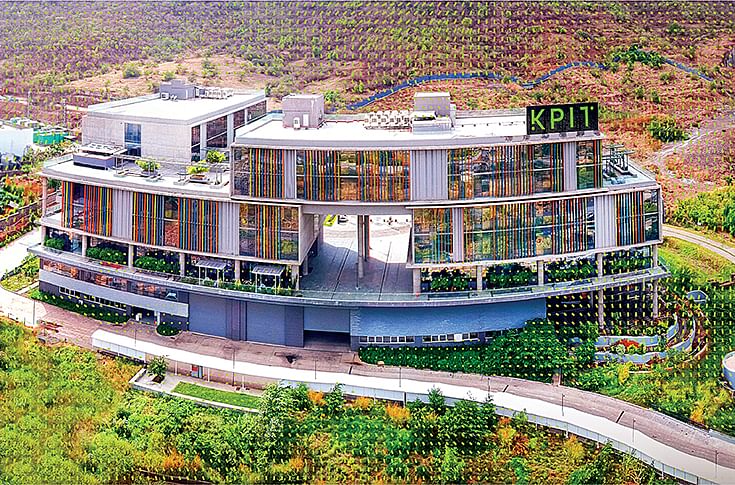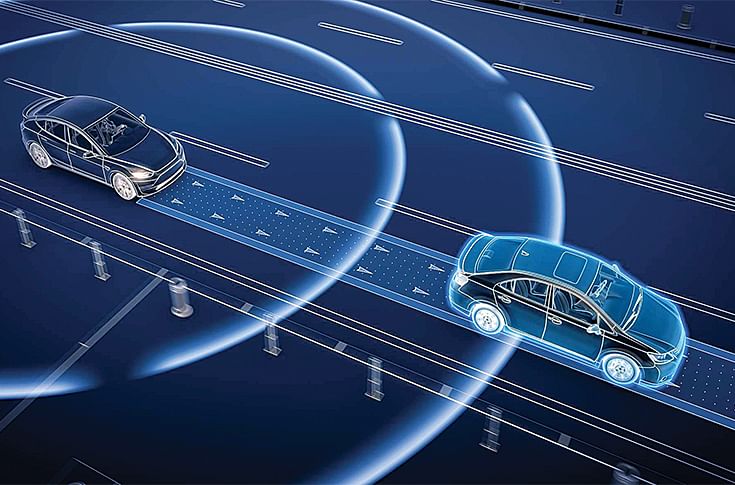KPIT’s Anup Sable: ‘We scan close to 25 million lines of software code every day.'
KPIT's Chief Technology Officer on how the Pune-based global technology company with software solutions that will help mobility leapfrog towards an autonomous, clean, smart and connected future
The Pune-based global technology company with software solutions that will help mobility leapfrog towards an autonomous, clean, smart and connected future aims to enable quick deployment of next-generation vehicles. In conversation with Anup Sable, KPIT's Chief Technology Officer.
How has KPIT renewed its focus in the automotive space, exclusively as an auto player?
The term to be used is mobility. Traditionally we have been very active in the automotive space which is the erstwhile passenger car. There were a few commercial vehicle customers earlier, now we have created separate vertical(s) for passenger cars, commercial vehicles and for new mobility. In new mobility, we want to take a look at what could be the solutions offered to the new- generation companies that are coming up, especially in ride-sharing. Considering the mechanics of the concept, there is a lot of software analysis and algorithms that would work there.
How do you see the road ahead for the new- age mobility vertical, especially shared mobility? How could it take shape?
While on the surface you see the trends — electric mobility and autonomous vehicles — the impact of that on the inside of the vehicle in terms of the architecture is tremendous. We are going to see leaps and bounds of change in terms of architecture, business model, and changes in the customer ecosystem. We are going to see new-generation technology coming from a software perspective. Everything that is happening elsewhere, will happen in automotive — an agile method of managing projects, software management and newer architectures which would be a combination of distributed and centralised processes. That gives us a lot of scope in terms of domain control mechanisms. Virtualisation will also come into these domains. There is a plethora of technologies that will come into the picture inside the vehicle, which will not be visible to everybody.

To elaborate more, traditionally the OEM was the integrator and it used to buy special systems from suppliers. They would purchase brakes from somebody, engines from someone else and then the transmission would come from somebody else. Then it had to make sure that they match with each other. The systems became intelligent with the advent of electronics, and more intelligent with software. Then OEMs started putting more control on the way software operates through things like OBD, the environment became a challenge and eventually this whole thing started coming to a situation where it is very difficult to integrate the system if you don’t control the top of the software. If you look at an adaptive cruise control system, it has an engine, brakes and transmission inside it. Somebody has to actually do the integration and write the supervisory mechanisms to do that. Traditionally, all of these things moved into a distributed system, essentially because of the business models. So Tier 1 worked on very high-end software and the OEMs used to basically start integrating even at the software level, and KPIT played a great role even there in terms of the product and the solutions we brought there. But now you will increasingly see that instead of a full distributed system, there will be a centralised system. The architecture will start making an impact somewhere in 2022 or 2023 model years, first with partial introduction and then a subsequent full launch of that. Ecosystems will change, so OEMs would want to do more software, they will want to have more control in terms of them saying, ‘I want four features inside it, can you actually quickly bring it to the market?’ If you look at autonomous, it has got so much of constraints on it and hence the central architecture. There is going to be a need for leveraging the central architecture and then I think there is going to be a little bit of ecosystem shift in that process.
Is it true that new-age cars are going to have more lines of codes than a Boeing aircraft?
It will actually go berserk. Actually, when we started, we had this discussion in 2006 and we said that what do we have to do to tie down to a single metric for the growth of the automotive business. We said that we will put it down to the lines of code that is there inside the car. In 2006, we were hovering around, on an average, at about 8-10 million and we were predicting that it is going to cross 100 million. For 2015-16, we projected around 100 million lines of code and the new predictions are saying that it will go to about 300 million in the very near future. In about five years' time, it will go to that level, the complexity of managing this kind of a portfolio is bigger than any large projects you can imagine in any sector. In fact, one of the good challenges that we have taken through this is also evangelising that from an engineering perspective automotive is the coolest thing to do because the new engineers getting out of the universities do not really know this. I think KPIT will play a very important role in evangelising this aspect.
The automobile industry will become agile and it will come with the challenges that will still be involved with safety and security issues. On one end you want things to come out faster and on the other you want it to be completely fortified and safe.
So now the customers would be more focused on what they want to be provided rather than on the platform it will be delivered?
That is what we bring to the table and in the auto sector. Customers have different levels of maturity. There will be some who are more ahead and have a very strong software team and I like the software integrator's role. These are the pieces I would like to, from a solution perspective, give out.
In some cases, you have the customer really identifying saying, ‘Okay, looks like you guys know everything. So, I'd rather bother only about the innovation and features. Here is my very small and compact thinking about what to launch to the market faster and you guys do the implementation.'
How is your alliance with BMW on autonomous and MPtech of Austria progressing and when do we see the first results on the road?
The teams are in place, the work has already started. It is a full ownership kind of a setup where we set up the spring team, it adopts an agile methodology and we basically pick up a few of the features. We take the ownership and develop and deliver them to the central depository and currently a huge number of features are under development.

The BMW Group is collaborating with KPIT and TTTech to press ahead with the scalable Autonomous Driving Platform and to work together on the development of Level 3 and Level 4/5 functions (Highway Pilot and Urban Pilot).
The first phase is going to be development and the second integration with the hardware. The third phase would be actually testing the vehicles on the road. What is changed is traditionally this would have happened in a waterfall way: Phase 1-2-3 but now as soon as the feature is getting developed, it starts getting tested in the car immediately. Literally, it is like the cars are waiting, the features are being put and the cars move out on the road and the features start getting tested. These are probably very early days of putting such methodologies in place and there are a lot of learnings that are coming out. For the customer and us, it is going to evolve in terms of what could be the possible issues and how do you build function and safety as an essential part. So processes are evolving out of that but it is going to be much speedier.
From a features perspective, I would not be privy to BMW's announcements on that. Typically, when we work on any development project, for example, currently for all projects that we do, typical model years are MY21 and MY22. In some cases, we work on MY23 and for some cases we work on real revalidation for MY24. MY21 terminology means that model year 2021 gets launched sometime in September of 2020. So most of the production work happens for MY21 now and a lot of work is happening for 2022 as well.
So this will be fully autonomous?
I think it is going to be very OEM-specific of how they would like to launch it.
Are you looking for any other partnerships?
There are many partnerships going on. I think there is some struggle to get approvals from the customers to mention their names. BMW is the known one.
At what rate do you view auto business growing?
We expect to grow at least 20 percent in one year. The changes that are coming in will create more and more opportunities, which are not going to be available for everyone. You really need to go and have deep domain expertise and minimal amount of investment to make these things happen.
So I think we have to be careful in terms of how much the demand is and realise the readiness in terms of capturing that demand. We don’t want to go and start delivering sub-standard, which is why we have taken that ‘Zero Defect Mission’ also that is going to be very heavily technology oriented. Its not just a statement, we have already deployed it. Today in KPIT, we automatically scan close to 25 million lines of software code everyday and there are various tools. We have multiple orders that involve detecting defects and non- compliance issues.
(This interview was first published in the July 1, 2019 issue of Autocar Professional)
RELATED ARTICLES
"Connectivity and ADAS will drive the next wave of disruption": Sundar Ganpathi
Tata Elxsi's CTO Sundar Ganapathi on how connectivity, ADAS, and data will define the next wave of automotive disruption...
INTERVIEW- Renault CEO Cambolive: 'India Is Renault' — Targets 3–5% Market Share by 2030
Renault is pursuing a fundamental reset of its India strategy, says brand CEO and Chief Growth Officer Fabrice Cambolive...
INTERVIEW: "EV Demand is Rebounding both in India and Around the Globe" - JLR's Rajan Amba
Jaguar Land Rover India MD Rajan Amba discusses the India–UK FTA, the company’s manufacturing plans, the upcoming Panapa...






 01 Aug 2019
01 Aug 2019
 37079 Views
37079 Views





 Darshan Nakhwa
Darshan Nakhwa


 Hormazd Sorabjee
Hormazd Sorabjee

 Prerna Lidhoo
Prerna Lidhoo

